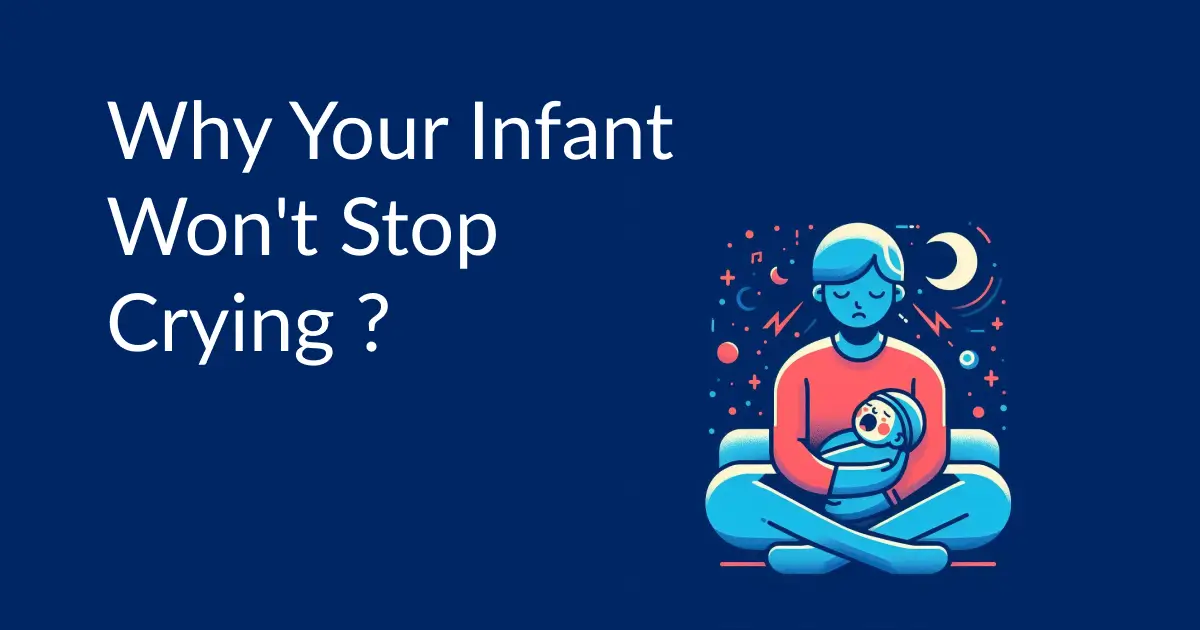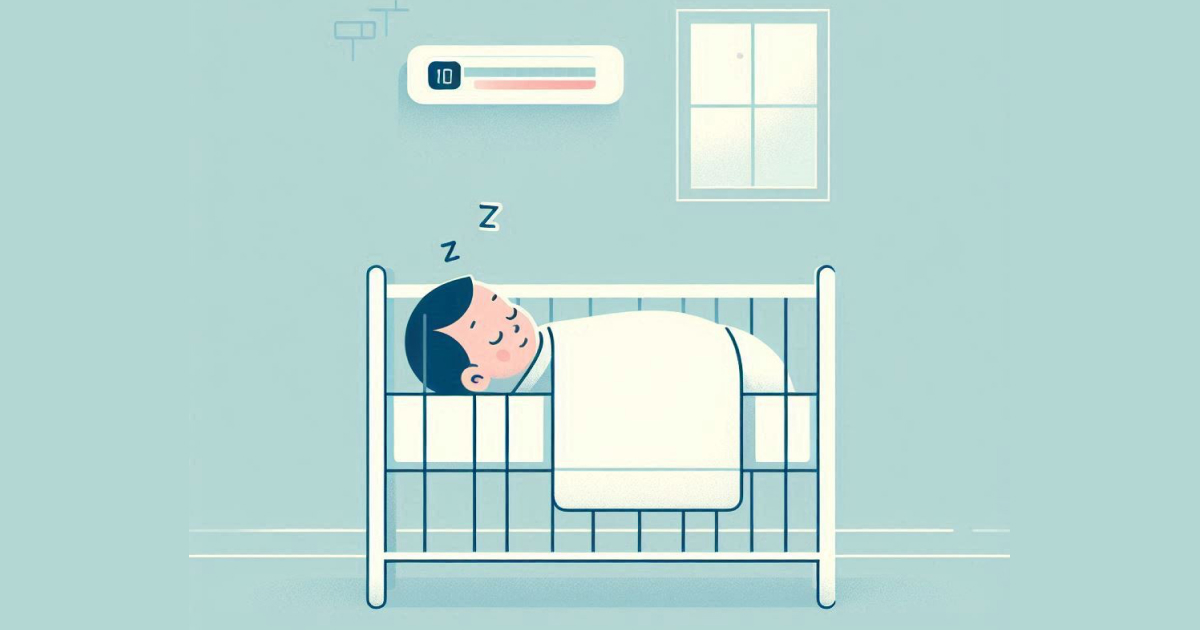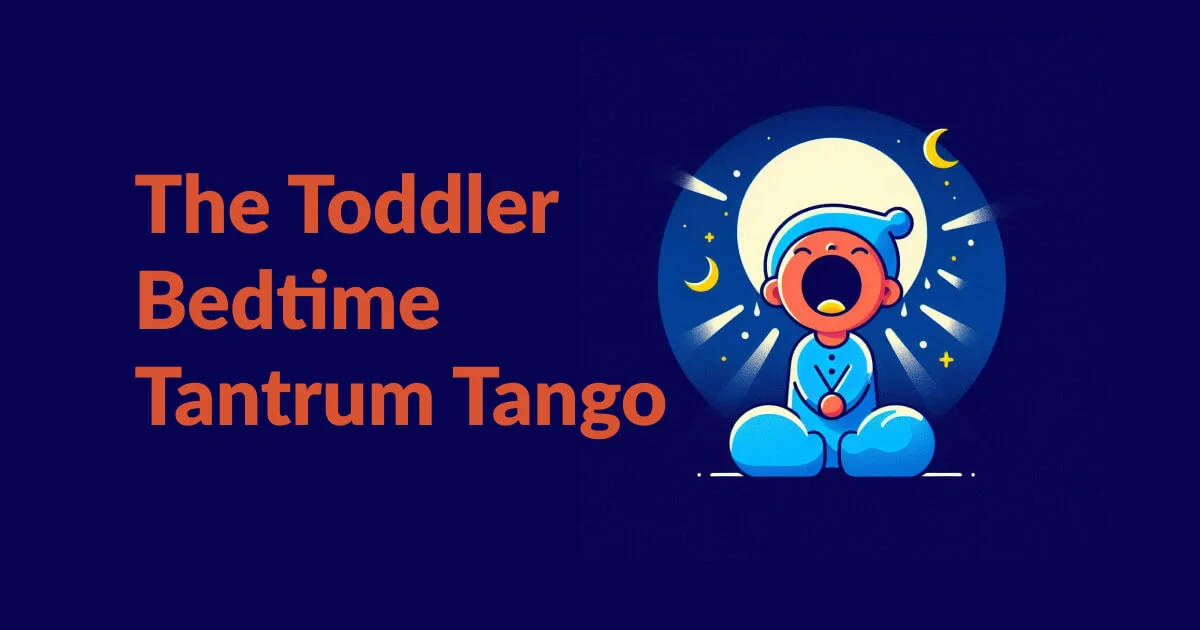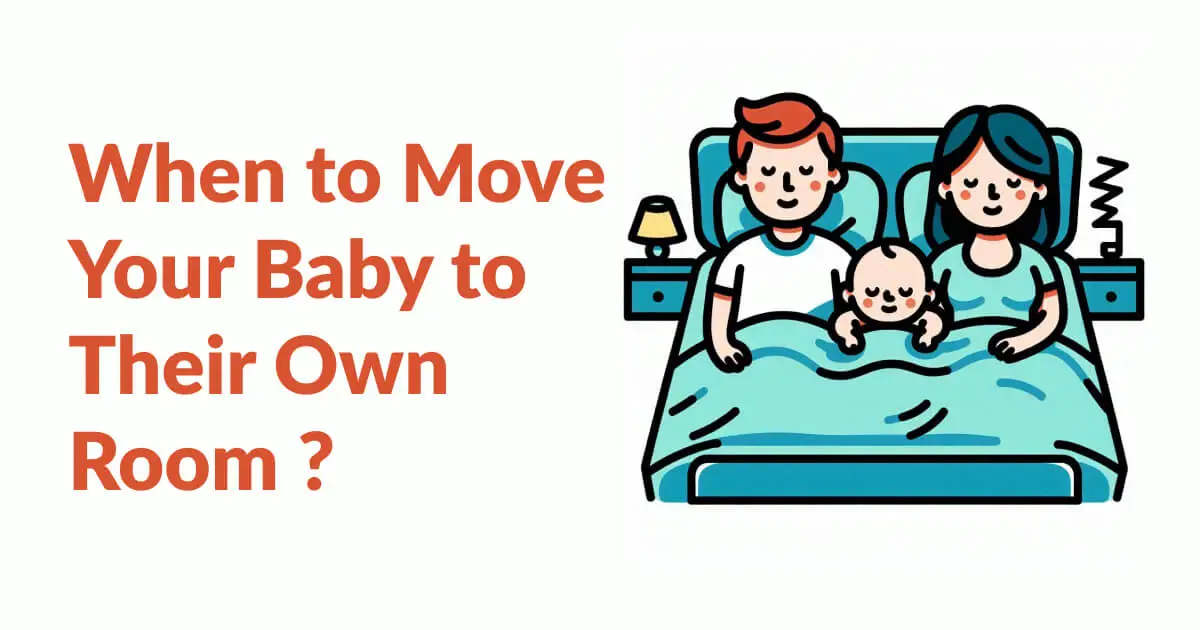
Why Your Infant Won't Stop Crying?
A guide to help you understand why your newborn cries non-stop at night and how to soothe them.
parentingnewborncryingbabydesignbedroomRemember that first night home with your little one? The world was a whirlwind of joy, exhaustion, and a constant symphony of tiny, high-pitched cries. You held your precious newborn, mesmerized by their delicate features, but that tiny, fragile being seemed to be communicating a language you didn't yet understand. "What does this cry mean?" you wondered, feeling a mix of love and helplessness.
Before you can soothe your baby, you need to understand why they're crying. This isn't always easy, as the reasons can be varied and sometimes even confusing. But remember, your baby is crying for a reason, and figuring out that reason is the key to finding peace.
Common Reasons for Newborns Crying Nonstop and How to Address Them
1. Hunger: Newborns have tiny stomachs that need frequent refueling. If your baby is crying, especially if they're rooting (moving their head from side to side with their mouth open), they might be hungry. Offer a feed and see if they settle.
2. Wet or Dirty Diaper: A simple diaper change can work wonders! Check if your baby needs a fresh diaper and change it promptly.
3. Fatigue: Just like adults, babies need their sleep. If your baby seems tired, try creating a calming environment with dim lights, white noise, or a gentle rocking motion. Swaddling can also help them feel secure and encourage sleep.
4. Overstimulation: Newborns are easily overwhelmed by too much noise, light, or activity. If your baby is crying, try taking them to a quiet, dimly lit room and see if they calm down.
5. Pain or Discomfort: Gas, colic, teething, or even a simple scratch can cause pain and discomfort. Try burping your baby, offering a soothing massage, or using a warm compress to relieve the discomfort.
6. Stranger Anxiety: As your baby grows, they might start developing stranger anxiety. If your baby is crying when they're around unfamiliar people, try to keep them close and avoid forcing interactions.
Why do Infants Cry at Night?
Nighttime crying is a common concern for new parents. You're exhausted, and the sound of your baby's cries can be unsettling. Remember, it's okay to feel overwhelmed and frustrated. This is normal. The key is to find ways to soothe your baby and manage your own stress.
1. Hunger: Newborns need to feed frequently, especially at night. If your baby is crying, offer a feed and see if they settle.
2. Trapped Wind: Babies can swallow air during feeding, which can lead to gas and discomfort. Try burping your baby before and after feeding to help relieve trapped wind.
3. Teething: Teething can start around 6 months old and cause pain and discomfort. Offer a cold teething ring, massage your baby's gums, or give them a pain reliever recommended by your pediatrician.
4. Reflux: Reflux is the regurgitation of milk after feeding, which can cause discomfort. Try feeding your baby smaller, more frequent meals and keep them upright for 30 minutes after feeding.
5. Colic: Colic is crying for no apparent reason, often associated with tummy discomfort. It typically starts around 2-3 weeks of age and can last for several weeks or months. If you think your baby has colic, talk to your pediatrician. They can offer guidance and reassurance.
6. Constipation: Constipation is more common in formula-fed babies and can cause pain until relieved. Talk to your pediatrician about ways to manage constipation.
7. Illness: Infections or pain can lead to increased crying. If you think your baby is ill, seek medical advice from your pediatrician.
8. General Discomfort: Issues like a dirty diaper, being too hot or cold, or uncomfortable feeding positions can cause discomfort.
A 3 Month Old Infant Wakes Up In The Middle Of Her Nap And Starts Crying What Should You Do ?
Dr. Harvey Karp, a renowned pediatrician, developed a method called the “5 S’s” to help soothe crying infants. These techniques are based on the idea of recreating the comforting feeling of the womb for your baby.
1. Swaddling: Wrapping your baby in a swaddle blanket can provide a sense of security and reduce startling reflexes.
2. Side or Stomach Position: Babies often prefer to be on their side or stomach, as these positions can help to relieve gas and discomfort.
3. Shushing: Making a shushing sound can mimic the white noise of the womb and help to calm your baby down.
4. Swinging: Gentle rocking or swinging can provide a sense of comfort and help your baby to fall asleep.
5. Sucking: Offering your baby a pacifier or allowing them to suckle on your breast or a bottle can help to soothe them.
When to Seek Help: Understanding When Infant Crying Requires Medical Attention
Most of the time, baby crying is normal and will settle with patience and reassurance. However, there are times when it's important to seek medical attention.
Contact your pediatrician if:
- Your baby is crying frequently and excessively, even after addressing basic needs.
- Your baby is crying inconsolably and you can't soothe them.
- Your baby is crying in a high-pitched, strained tone.
- You notice any other unusual symptoms, such as vomiting, diarrhea, fever, or lethargy.
Call your pediatrician or 911 immediately if:
- Your baby is having seizures.
- Your baby is having trouble breathing.
- Your baby is unresponsive to your touch or stimulation.
- You notice a rash that could indicate meningitis.
Parental Self-Care: How to Stay Calm When Your Newborn Won’t Stop Crying
It's important to take care of yourself both physically and emotionally during this time. Remember, you can't be a good parent if you're feeling overwhelmed and burnt out.
Recognize your limits: Don't be afraid to ask for help from your partner, family, or friends. Even a short break can help you feel refreshed and able to cope better.
Don't get discouraged: It's normal to feel frustrated or helpless when your baby won't stop crying. Just remember that you're doing your best, and your baby will eventually settle down.
Reach out for support: There are many resources available to help you cope with the challenges of newborn parenthood, including parenting classes, support groups, and online forums. Don't hesitate to connect with other parents who understand what you're going through.
Avoid striving for perfection: It's okay to not always have all the answers. Do your best, but don't beat yourself up if you make mistakes. Every parent makes them!
Coping with Colic: What to Do When Your Infant Cries for No Reason ?
Colic is a common condition that affects many infants. It's characterized by crying for no apparent reason, often for long periods and with great intensity. While there's no cure for colic, there are things you can do to help soothe your baby and manage your own stress.
1. Seek Support: Talk to your pediatrician, who can provide guidance and reassurance. They may also suggest ways to help soothe your baby, such as changing your diet or using a white noise machine.
2. Consider Diet Changes: If you're breastfeeding, talk to your pediatrician about whether certain foods in your diet might be contributing to your baby's colic.
3. Be Patient: Colic typically resolves on its own within the first few months of life. In the meantime, be patient, try different soothing techniques, and seek support from your partner, family, or friends.
Attachment Milestones: Tracking Emotional Connection
As you journey through your baby’s first year, it’s important to be aware of developmental milestones, particularly in the area of attachment.
- Social Smile: The first signs of a social smile typically emerge around 6-8 weeks old.
- Eye Contact: Babies begin to engage in prolonged eye contact and gaze at their caregiver’s faces, developing an emotional connection.
- Reciprocal Play: From 4 months onwards, babies become increasingly responsive to their caregiver’s actions, engaging in reciprocal play with smiles, coos, and gestures.
- Separation Anxiety: Around 7-9 months, babies begin to show separation anxiety, becoming distressed when separated from their primary caregiver.
By monitoring these milestones, you can gain a deeper understanding of your baby’s emotional development and strengthen your bond. If you notice any delays or concerns, don’t hesitate to consult your pediatrician.
Evaluate Your Emotional State: It Affects Your Baby’s Behaviour
Your emotional state can significantly impact your baby’s behaviour. When you’re calm and relaxed, your baby feels more secure and content. However, when you’re stressed or anxious, your baby might sense your emotions and respond with crying or fussiness.
- Practice Mindfulness: Take time to focus on your breath, meditate, or engage in activities that promote relaxation.
- Seek Support: Don’t be afraid to reach out to your partner, family, or friends for emotional support.
- Prioritize Self-Care: Make time for activities that bring you joy and help you recharge.
Support for Parents: Resources for When Your Infant Won’t Stop Crying
You are not alone! Many parents go through this. Remember, you are doing a great job, and you are learning every day. There are many resources available to support you on this journey.
- Parenting Classes: Many community centers and hospitals offer parenting classes that provide information and support on various aspects of baby care.
- Support Groups: Connecting with other parents who are going through similar experiences can be incredibly helpful.
- Online Forums: There are many online forums and communities where parents can share their experiences, ask questions, and receive support.
- Professional Help: If you're feeling overwhelmed or struggling to cope, don't hesitate to seek professional help from a therapist, counselor, or social worker.
Babies Cry to Communicate: It's Their Language
Think of crying as your baby's primary language. It's how they express hunger, discomfort, pain, or even boredom. Over time, you'll learn to decipher their different cries, recognizing the subtle variations that indicate specific needs.
Remember, the most important thing is to stay calm, be patient, and seek support when you need it. You are an amazing parent, and you will get through this!
Explore & Read More Blog Articles

32 Baby Room Decor Ideas
A collection of 32 creative ideas for your baby's room. Get inspired by these design ideas and create your own room.

The Guide to Creating the Perfect Nursery
As you eagerly await your little baby's arrival, one of the most exciting tasks on your to-do list is creating their very own room / nursery.

Navigating Postpartum Depression as a New Dad
A guide to navigating postpartum depression as a new dad, including tips for coping, communication, and self-care.

Postpartum Depression: Signs, Symptoms, and Seeking Help for New Moms
Discover the signs and symptoms of postpartum depression, understand the difference between baby blues and PPD, and learn how to seek help

How To Dress Your Baby for Sleep
A story of sleepless nights, the nighttime temperature struggle, and how to dress your baby for sleep.

Why Do Toddler Tantrums Happen?
This guide is your roadmap to conquering those nightly meltdowns and reclaiming your sanity. The Toddler Tantrum Tango: A Nightly Struggle.

Why Your Infant Won't Stop Crying?
A guide to help you understand why your newborn cries non-stop at night and how to soothe them.

When to Move Your Baby to Their Own Room ?
Let's break down the facts and explore the pros and cons of room sharing versus independent sleep, so you can make an informed decision that works best for your family.